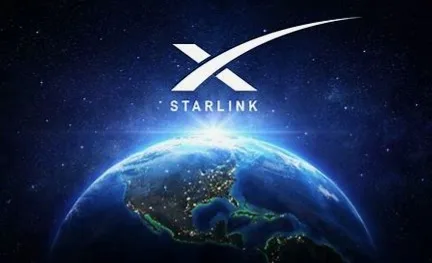
Starlink, the satellite-based internet service by SpaceX, has secured a provisional registration from the Pakistan Space Activities Regulatory Board (PSARB), marking its first official step toward launching operations in the country. However, while its entry has sparked excitement over the prospect of high-speed internet in remote areas, its journey forward remains tangled in bureaucratic, financial, and technical hurdles.
Before Starlink can officially roll out its services, it must obtain a formal license from the Pakistan Telecommunication Authority (PTA), establish ground gateway stations, and comply with security and regulatory requirements. Industry experts estimate that this process could take up to a year, as PSARB, in collaboration with international consultants, is still developing the necessary regulatory framework.
Despite these obstacles, the possibility of satellite-powered internet bridging Pakistan’s digital divide remains an exciting prospect. However, the question remains—can Starlink overcome the challenges of affordability, scalability, and regulation to become a viable option for the average Pakistani consumer?
One of Starlink’s biggest roadblocks is its steep pricing, which stands in stark contrast to Pakistan’s price-sensitive broadband market. A monthly subscription fee of PKR 35,000, coupled with an initial hardware cost of PKR 110,000, makes it a luxury service rather than a mass-market solution. With local Internet Service Providers (ISPs) offering significantly cheaper alternatives, Starlink’s high-speed, low-latency promise may appeal only to corporate clients, tech hubs, and high-income users, leaving the majority of consumers out of reach.
Beyond affordability, Starlink’s target market does not align well with Pakistan’s broader consumer base. Most internet users prioritize affordability over performance, relying on budget-friendly packages that local ISPs provide. While satellite internet could be a game-changer for connectivity in rural and underserved areas, the cost barrier makes it unlikely that the very communities it aims to serve will be able to afford it.
Even if affordability weren’t an issue, Starlink faces major scalability concerns. Its V1 satellites provide a bandwidth capacity of only 20 Gbps per satellite, which can support around 400 users at 50 Mbps. For a country as large and densely populated as Pakistan, meeting demand would require massive capacity upgrades, which would be costly and time-intensive. Additionally, the establishment of gateway stations and ground infrastructure is a necessity—an undertaking that involves significant investment and extensive regulatory approvals.
Beyond technical and financial challenges, regulatory approvals and security concerns could slow Starlink’s rollout even further. Pakistan has strict regulations surrounding data privacy, cybersecurity, and satellite communications, and the government remains cautious about allowing foreign satellite-based internet services to operate without rigorous oversight. Ensuring compliance with PTA and PSARB regulations will be a complex and potentially lengthy process, raising questions about how soon Starlink can actually launch in Pakistan.
While Starlink’s arrival in Pakistan is undoubtedly a significant development, its success is far from guaranteed. The combination of high costs, regulatory red tape, and scalability concerns could make it a niche offering rather than a widespread solution. Unless Starlink addresses affordability concerns, expands its capacity, and builds trust with regulators, its mission to transform internet access in Pakistan may remain more of an aspiration than a reality.
A sudden and provocative strike from Israel this Saturday morning underscored escalating tensions in the…
The Government of Pakistan has issued a safety advisory for all Pakistani nationals, advising them…
In a fresh wave of tension between Israel and Iran, explosions shook Tehran as Israeli…
In a significant move to cement Russia-Pakistan ties ahead of Prime Minister Shehbaz Sharif's upcoming…
Harrison Ford's portrayal of Paul Rhoades in the Emmy-nominated Apple TV+ series, Shrinking, has garnered…
A tragic incident unfolded near La Paz on Friday when a Bolivian military cargo plane…
This website uses cookies.